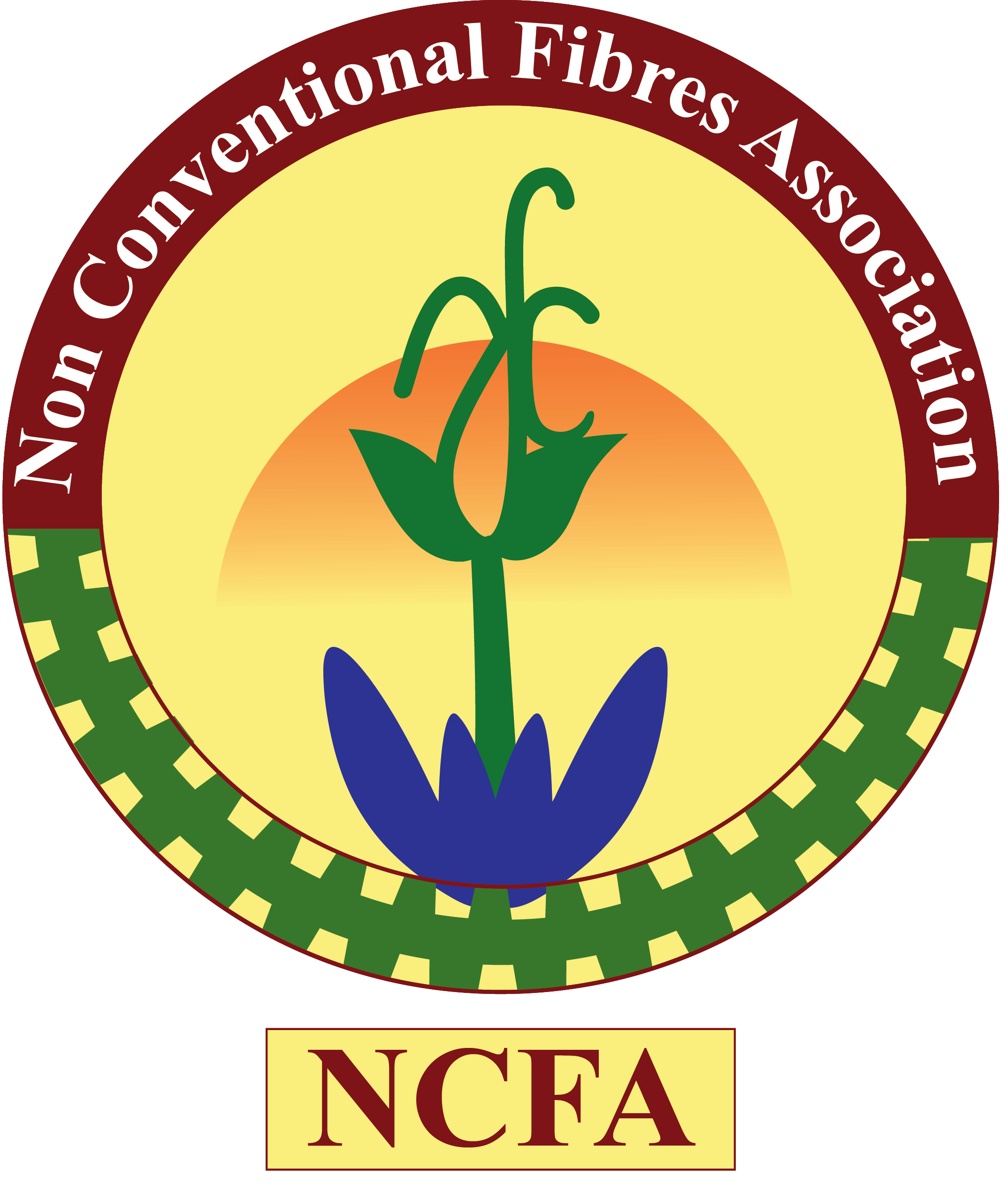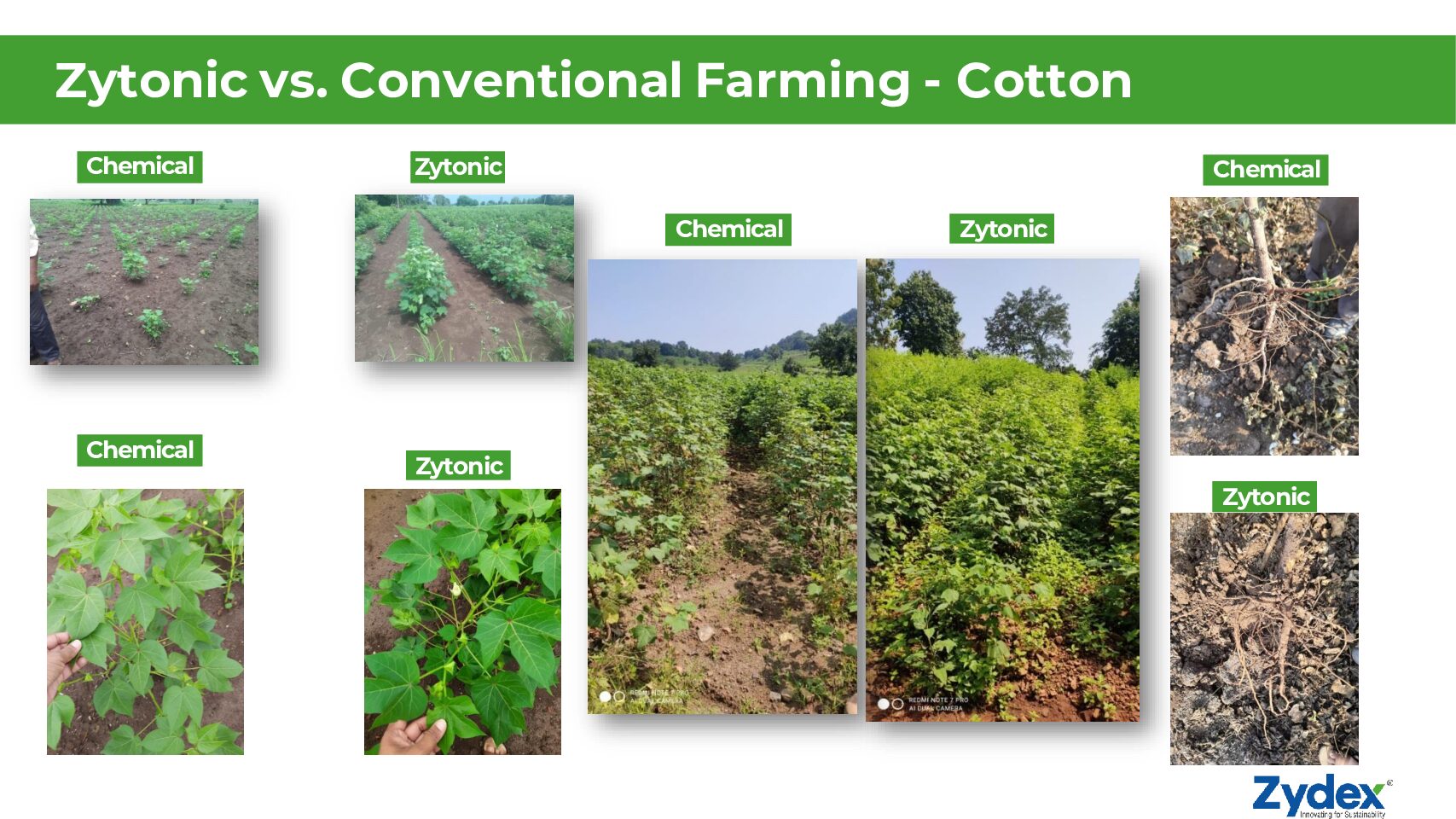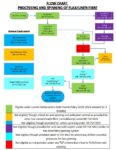Zydex Group confidently claims to have created a revolutionary, disruptive technology that will help the farm sector to go organic in one crop cycle, with income and yield positive outcome. Around 150 farmers in various villages across the country have currently conducted trials of this technology, with good proven results for specifically cotton crop.
“We have pioneered a globally first technological products and protocols that have helped us achieve these revolutionary results. Our products are now certified for organic application. I’m proud to say that Zydex is a company innovating for the world,” said Dr. Ajay Ranka, Chairman & MD of Zydex Group.
“Last season we had 150 farmers across India who went completely on to chemical-free cotton with higher profitability and yield. We did not go specifically for organic because seed availability was an issue at ground level. We had to use Bt cotton seeds and achieved good results.

“I have given a Rs 1 lakh challenge to people who are sceptical. So, I’m putting Rs 1 lakh on the table, and the disbelievers should do the same. I challenge them to use their best practices in their chemical farms and I will use my technology and best practices also in their farm, right next to each other. Any crop, any farm, any temperature zone. Whoever makes more profit, increases yield, wins the Rs 2 lakh. No manufacturer will give you this guarantee.”
What is this new technology?
Zydex has developed Zytonic Soil amendment technology platform and inoculated with mycorrhiza and different microbial like NPK consortia, Zinc, Potassium mobilizing bacterial, etc. It addresses all the aspects of physical, biological and chemical properties of farm soils. This is a biodegradable biology boosting technology. It makes soils soft and reduces crusting, thereby improving germination. Zytonic application also makes soil porous and enhances aeration with improved soil water holding capacity leading to a larger and denser root zone to improve plant survival rates even under adverse conditions. This is particularly helpful with rainfed cotton crop.
Porous soils improve gas exchange, which helps in boosting the population and activity of beneficial bacteria, fungi, protozoa and nematodes. The mycorrhiza inoculum in Zytonic-M helps to further extend the root zone and enhances nutrient and water absorption. This leads to 20-40% water savings from the first application itself.
A large root zone and active biology further improves plant resistance to pest and fungal attack leading to healthy, disease resilient crops. Elimination of nitrate and ammonia due to zero use of urea and di ammonium phosphate helps to reduce pest attack substantially.
Zytonic-M improves the soil cation and anion exchange capacity thereby improving crop nutrient uptake efficiency. This results in darker green foliage indicating higher chlorophyll content and enhanced rate of photosynthesis with adequate sugar and carbohydrate production. The excess sugar and carbohydrates also feeds the enhanced soil biology and improves the soil organic content.
“There are various components to this “Project Sanjeevni” – how to protect the plant without chemicals, how to grow the crop faster, how to manage the soil porosity, biological innoculations and providing good quality manure. So all this comes together as a package,” explains Dr. Ranka.
India is today the largest organic cotton grower in world, accounting for 50% share of global organic cotton production. But the process to go completely organic is not easy. The conversion process to organic cotton remains financially unfeasible for most farmers, despite health benefits. Certification takes three years during which time farmers experience a 20-30% decrease in crop yields. Moreover, they are unable to sell the organically produced crops at organic prices due to the lack of certification and 2nd crop organic should be profitable.
Why Will This Zytonic Technology Succeed?
According to Dr. Ranka, higher economic benefits of the technology – ease of converting the farms quickly to be free from chemical fertigation and crop care chemicals, without impacting yields, and in some cases, actually increasing the yields, and thus ensuring a better income to the farmer from first crop cycle itself – are obvious reasons for the success of this technology.
“There is a fundamental reason why organic farming will be successful in the country. India is known as the golden land. What does that mean? India has a favourable latitudinal position, which makes it perfect for bio activities to yield maximum benefit. The temperature range in which biology is highly active is between 15-32 degree centigrade. And bulk of Indian region soil temperature is in this range. And we have good amount of sunshine almost throughout the year. So there is a strong case for India to go organic profitably. Luckily, we still have a large number of farm animals, which can keep the soil rich in organics. Our technology package converts farm manure into vermicompost kind of quality, to be made available to the crops continuously, further boosting soil quality.”
And that’s not all. Zydex claims to reduce water usage by at least 40% compared to conventional cotton farming.
“We are reviving our land, making farming processes sustainable while saving water. And this technology is not just limited to cotton. It can also be used in organic forestry, giving you organic cellulosics like viscose. I believe the Indian textile industry should come forward to support this technology.”
He stresses that the Indian industry should help in setting up demo farms in villages for faster adoption of the technology. “Unlike the huge farm subsidies that are currently needed, this technology does not need to be permanently subsidised. An educative effort is needed. We need to set up 5-10 demo farms in every village, for three years, and we will see the transformation happening. Farmers need to see to believe. My vision and aim is that Indian cotton should be synonymous with organic cotton.”
“We have around 13 tribal districts along the MP border, which is very difficult terrain. I do a CSR project for six districts. So we are educating these tribals, because they would otherwise never get exposed to such technology. We have been successful with these tribal farmers giving us confidence it should succeed everywhere.”
Cost To The Farmer
The initial cost of land and soil revival is high for the first three years or so. “Till the soil fertility, organic carbon levels, microbial population increases, the initial input costs are somewhat high. But chemical pesticide costs come down immediately. We have created a technology called Microencapsulated Neem. With this, we manage to keep the entire plant surface bitter for a longer period of time which the microbes, insects dislike. And thus the crop is protected. It is a proven fact that insect and pest attacks are 80% lower in organic farms than in conventional farms due to lower nitrate and ammonium level in plants,” explained Dr. Ranka.
“I have only just started to promote this technology in the industry, and am very happy with the encouraging response,” he said.
Zydex plans to engage mills in this efforts and form clusters to get them certified through FPO which can then allow the farmers to benefit. “This is also being taken up with BCI, with Confederation of Indian Textile Industry, and we are also connecting with large retailers,” informed Dr. Ranka.
Organic India Is The Larger Story
How did the idea for this come about? Says Dr. Ranka, “My concern started with nutritional impact of food on the next generation. Today we are feeding children food that is low in nutrition and high in toxicity. When I grew up in the ‘50s and ‘60s, food was very different. Now, I can afford organic food, even though I’m not sure how genuine the organic food labels are. But can I make entire India organic. Then I don’t have to worry. Everything in my country is organic. So we can live that dream, and bring it to reality, that’s the story, that’s the effort. The larger story is “Organic India.”
Will This Work For All Crops?
“I have given a Rs 1 lakh challenge to people who are sceptical. So, I’m putting Rs 1 lakh on the table, and the disbelievers should do the same. I challenge them to use their best practices in their chemical farms and I will use my technology and best practices also in their farm, right next to each other. Any crop, any farm, any temperature zone. Whoever makes more profit, increases yield, wins the Rs 2 lakh. No manufacturer will give you this guarantee,” says a confident Dr. Ranka.
He even suggests an acid test for this technology. “Let me suggest how you can validate this technology. Take the nutritionally most intensive crops – banana, sugarcane, cotton, and see if it succeeds there. Then go with the lowest input crops – wheat, rice, soya bean, and produce the result there. If you validate on these two spectrums, do I need to convince you any further? This would be the acid test for our technology. Then you can roll out the programme across India.”
Dr. Ranka is optimistic about making his dream of Organic India into a reality. “One very good thing happening this time is that our Prime Minister is talking about it. And government officials have taken note that the country’s top man is actually concerned about soil health, the toxic effects of urea, etc. There is a sort of realisation in the political class, social class, NGOs, thinking class, that there is something wrong in the agro system that needs to be corrected. So that’s helping.”
He reiterates that after stringent validation if the results are positive, the government stands to save crores of rupees in subsidies, the farmers get better, premium yields and incomes, the land becomes more sustainable, the Indian story becomes very different, Atmanirbhar Bharat is taken to a higher level.
“If this route is followed, it will not take India very long to turn organic. We have to do this in 6 lakh villages of the country, across all crops. That requires a robust educative demonstrative efforts, five farms in every village. With the support of the government, NGOs, stakeholders, industry, it’s doable.”




